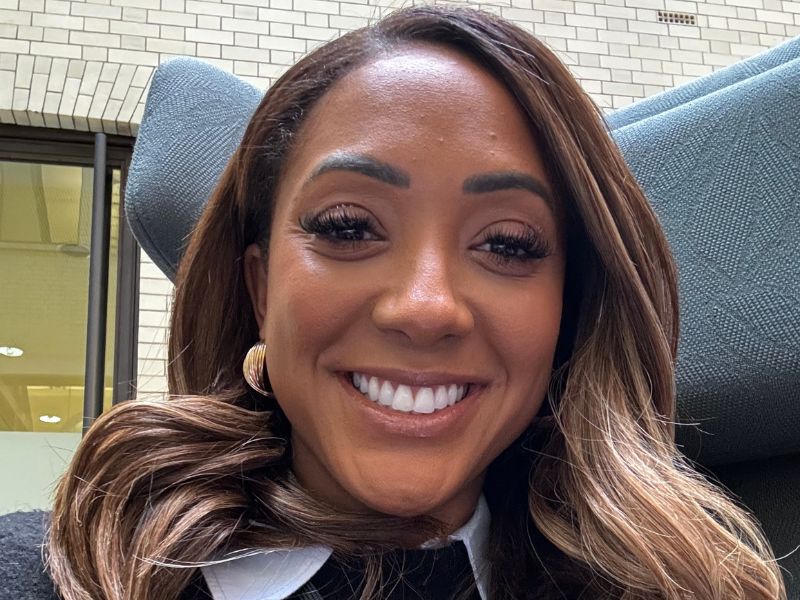
Hannah Johnson is managing director of Blue State in London, a values-led creative and campaigns agency that uncovers attitudes, inspires action and strives for progress in the world. It helps organisations such as Amnesty International and the Equality and Human Rights Commission tackle some of the biggest challenges of our time.
Fifteen years ago, I headed south from my small village in Yorkshire to an interview at a prestigious university in London.
When it was over, the parting words from the tutor were, “It’s amazing you’re projected to do so well in English, when you speak like that.”
Diversity and inclusion are at the top of the business agenda today, and rightly so. There’s still lots to be done to encourage racial diversity and equality in the workplace and the gender pay gap continues to rise despite pledges from the UK’s biggest firms for change.
But one area often neglected and forgotten is class – and what that tutor told me suggests that class prejudice is alive and well.
Many organisations are proud of their inclusion programmes. They’re often some of the most-visited pages on their websites and can make all the difference when attracting young talent.
But where’s the talk about class? Is it the last great taboo of diversity?
I wonder if class is, in some ways, seen as more personal even than sexuality or ethnicity – and if that leads to greater vulnerability when it’s brought to light. A lot of people seem to gloss over their life pre-university if it was working-class, whereas those who are from more privileged backgrounds will happily go into detail on their educational background.
And yet, the same arguments work for class as with any form of diversity: a broader range of employees means a greater breadth of perspective. Businesses that lack that perspective could be missing out.
In the creative and media industries, we focus our efforts on targeting ‘the consumer’, but I look around at the sector and tend to see executives almost exclusively from private and grammar schools rather than comprehensives like the one I attended.
If everybody looks and thinks in the same way, can they understand and reach the majority of real people as effectively as they should? Do they personally know people who use food banks, or who voted for Brexit because they felt they had to? Do they really know why the UK is so divided?
The fact that industries like the media are so London-centric really doesn’t help matters, either. The absurd level of house prices in the capital will naturally skew its inhabitants towards the wealthier side, simply because of the financial barrier it represents.
I worked for several years in a Birmingham agency largely because I couldn’t afford to live in London. And I’m sure I’m not the only one.
When that tutor made his disparaging comments all those years ago, I realised for the first time that I was different. And it wasn’t just that I had/have a Northern accent — something which recently led Doctor Who’s US fans to switch their subtitles on.
I still receive regular reminders of this ‘difference’. From being offered free elocution lessons to being told to lie about the name of my hometown and not to refer to ‘dinner’ as ‘tea’ (as apparently it’s terribly revealing of my roots), my class has received comment from previous employers, colleagues and clients.
And I’m not alone. The BBC’s Steph McGovern has spoken publicly about this difference — from being offered £20 towards correction therapy for her ‘affliction’ to ‘being paid less for being less posh’.
Five years ago, the BBC announced a new seven class system which, quite rightly, built out the three traditional classes (working, middle, upper) to seven — aiming to recognise modern complex nuances in UK society.
Whilst a more complex system feels like the right direction to head in, it still seems like we’re a way off understanding the true levels of bias that still play a role, often unconscious, in today’s social society. And businesses could pay the price if they share that bias.
After all, class is an enormously dominant factor in the country’s social structure – and not for the better. Data suggests one in 12 children across the UK are being taught at under-performing secondary schools and, perhaps more shockingly, 19 per cent of children under 15 in the UK live with adults who struggle to buy food. Poor diet has even seen Victorian diseases such as scurvy and rickets return.
It’s 2019. And yet, social mobility is ‘virtually stagnant’. In the same way that business leaders are being encouraged to broaden their reach towards women, BAME applicants and the LGBTQ+ community, perhaps they should be doing the same for those from working-class backgrounds.
I’m fortunate to be part of a business that is very progressive – as a values-led agency, Blue State works hard to create a culture of inclusivity and always seeks to work with others who do the same.
It’s not just good for society; a diverse and representative team from all parts of the country – and the world – makes good business sense. It helps us better understand the people we’re looking to talk to and allows us to provide the breadth of experience that our clients need. As someone who’s proud of my roots, I’m hopeful that, in time, we’ll see more businesses doing the same.








